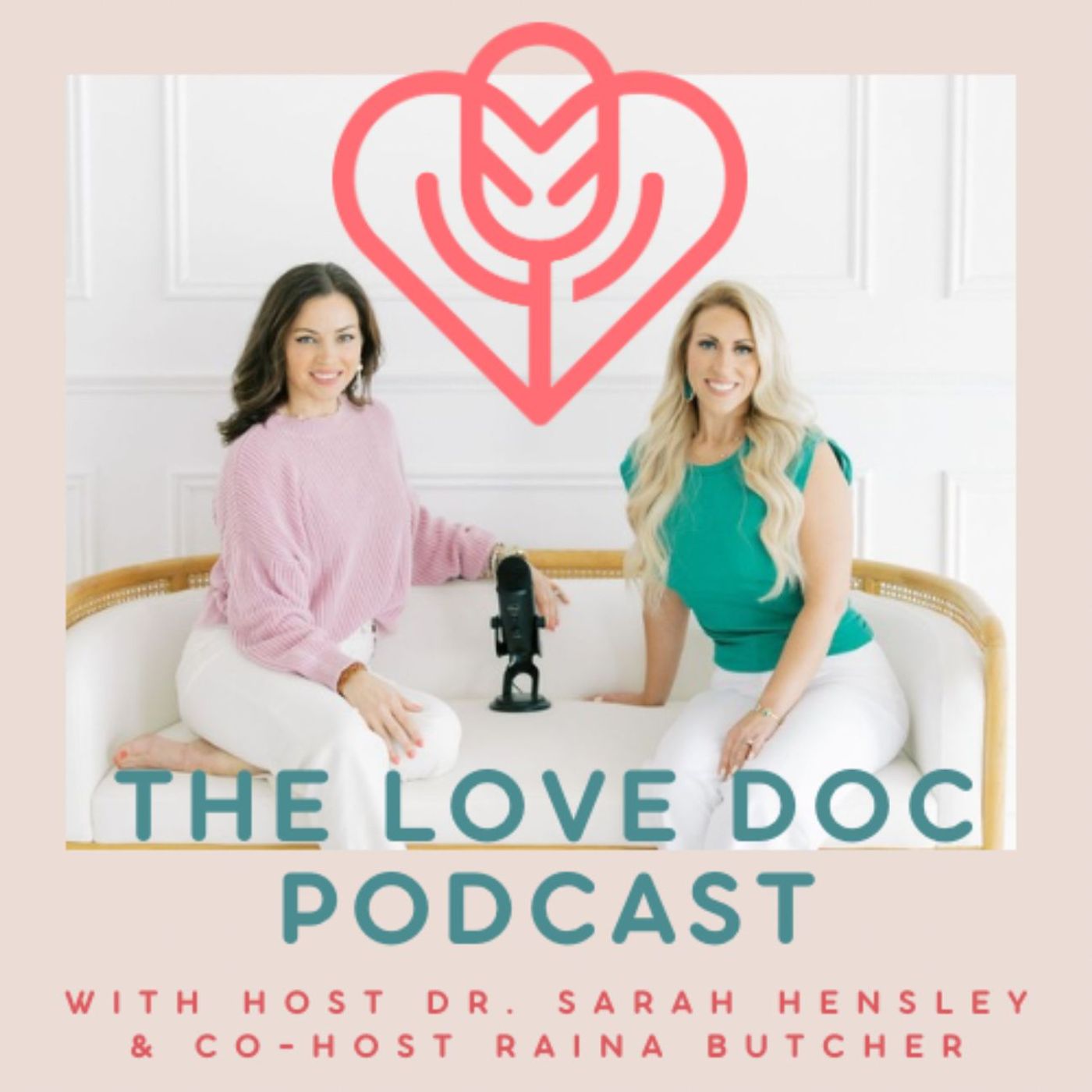Oct 22 2024 30 mins
Hosted by Dr. Sarah Hensley, Specialized Social Psychologist, Attachment Theory Expert, and Founder & CEO of The Dating Decoder with Co-host Raina Butcher, Owner/CEO of Joyful Consulting Welcome to "The Love Doc Podcast" where Host Dr. Sarah Hensley and her co-host Raina Butcher dive deep into the intricacies of love, attraction, attachment, relationships, and self-awareness. Dr. Hensley brings a wealth of knowledge and experience to help listeners navigate the complexities of modern romance. In each episode, Dr. Hensley tackles burning questions about love, relationships, and the mind’s complexities, drawing from her psychological research, real-life experiences, and her own individual expertise, to provide insightful perspectives and practical advice. Episode 23 “Raising Secure Children,” Dr. Hensley delves into how attachment theory is not just relevant to romantic relationships but also plays a critical role in parenting. She explains that our attachment styles directly affect our children’s attachment styles, which can shape how they choose romantic partners in the future. Dr. Hensley emphasizes that achieving your own attachment security is essential for raising secure children. The episode begins with Dr. Hensley reflecting on what she would have done differently as a parent, starting with the importance of choosing the right partner. She highlights that secure individuals tend to attract secure partners, while insecure individuals often attract others with insecure attachment styles. Dr. Hensley notes that this choice of partner not only influences attachment but also affects overall life happiness and success. Raina shares a personal story about how triggers from a past relationship impacted her parenting recently. She discusses a situation where her unresolved emotional pain affected her interaction with her son. Raina describes the guilt she felt but focuses on the repair process, where she admitted her mistake to her son and explained that she is still working through her own challenges. Dr. Hensley stresses that mistakes in parenting are inevitable, but secure parenting lies in how we repair those mistakes—similar to how conflicts are resolved in romantic relationships. Dr. Hensley goes on to explain that our nervous systems remember trauma, which is why repairing emotional rifts with children is crucial. Children constantly seek emotional safety from their caregivers, so it’s important to show them that parents are human while ensuring that they don’t remain dysregulated or uncertain about the stability of the relationship. Dr. Hensley emphasizes the importance of teaching children how to regulate their emotions and modeling accountability when parents make mistakes. She also discusses parenting tactics she would avoid, starting with the “cry-it-out” method. Dr. Hensley admits she used this method with her first child but now challenges the approach, arguing that it can negatively impact a child’s nervous system and attachment security. She critiques sleep training specialists who promote this tactic, citing the scientific connection between crying it out and attachment insecurity. Another parenting pitfall Dr. Hensley would avoid is dismissing or punishing a child’s emotions. She explains that phrases like “You’re fine” or “Get over it” can invalidate a child’s feelings and hinder their emotional development. Instead, she recommends guiding children through the process of understanding and labeling their emotions, which aids in emotional regulation and prevents suppressing feelings, which can lead to avoidant attachment. Dr. Hensley provides a real-life example of how she helps her daughter process big emotions, emphasizing the importance of validating a child’s experiences. As the episode progresses, Dr. Hensley talks about teaching children how to feel and energetically move their emotions through their bodies. This practice, she says, is key to mood regulation, physiological health, and helping children develop a deeper awareness of their bodies. She also underscores the value of teaching children to set boundaries confidently so they grow up knowing how to prioritize their own needs and desires, rather than becoming people-pleasers. The episode wraps up with a discussion about the importance of teaching accountability. Dr. Hensley encourages parents to show children how to apologize sincerely, without shifting blame or including excuses. Raina and Dr. Hensley conclude by reiterating the significance of parents working on their own attachment security to model healthy, secure behavior for their children. They emphasize that it’s never too late to start teaching children what secure attachment looks like and how to nurture it. Tune in to "The Love Doc Podcast" every Tuesday morning for candid conversations, expert guidance, and a deeper understanding of love and relationships in the modern world. To see all of Dr. Hensley’s services please visit the links below and follow her on social media. Dr. Hensley’s Hybrid Group Coaching: https://www.thedatingdecoder.com/group-coaching/ Book one on one with Dr. Hensley or one of her certified coaches: https://www.thedatingdecoder.com/book-appointment/ Purchase Dr. Hensley’s online course: https://dating-decoder.mykajabi.com/offers/PpEPKnsM/checkout Tik-Tok: the_dating_decoder Instagram: @the_dating_decoder Facebook: The Dating Decoder Youtube: @Dr.SarahHensley What is covered: · How attachment plays a role in how we parent our children. · The importance of choosing the correct partner to have or raise children with. · The importance of how we repair emotional situations with our children · The importance of teaching children emotional regulation. . Things Dr. Hensley would have done different or would never do on her quest to raising secure children. . The importance of reaching your own attachment security in order to raise secure children. Consider/Ask Yourself: · Are you allowing your own attachment wounds to influence how you parent your children? · Is your relationship with your current or ex partner influencing how you parent your children? · How can I start attuning to my children's emotional needs better? . Am I dismissing or even punishing my children's emotions at times? . Am I teaching my children how to set appropriate boundries and how to take accountability?
